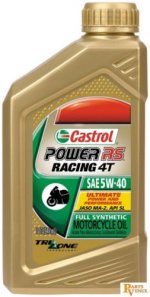Why would I trust the advice of an oil test company, which has a huge motivation to find something wrong, instead of the company that manufactured the vehicle in the first place and has a strong motivation to advise people on how to make their vehicle last? The issue isn't whether there is combustion products or other contamination or chemical breakdown or fuel dilution in the oil. The only issue that matters is whether the oil is preserving the life of the engine. Oil test companies don't determine that. Vehicle manufacturers do.
Actually, your engine determines what it needs so I respectfully disagree on this one. I suggest you trust the oil testing facility because they are providing a valuable service at a very reasonable price.
Oil testing companies are independently certified to be accurate. If they loose this rating or don't have it to start with they are pretty much out of business. Their livelihood is built upon trust and accuracy. That is their pony in this race. They test specifically to find things wrong in the oil before you find things wrong on the side of the road or when the bad news hits you at the repair shop.
Trucking companies, heavy equipment companies, racing teams and many others use these services regularly as they can't afford the pain of preventable problems.
There is more to the equation than dilution. Oil breakdown and metal contaminants in the oil will alert you to a poor quality lubricant or other issues with your engine before permanent damage is done. Manufacturers typically recommend lubricants that they feel
SHOULD take care of the engine under most conditions. But if you think BRP, or any manufacturer, is primarily interested in vehicle longevity then you are mistaken. And if you think the manufacturer's engineers are always right then you haven't been reading some of the problem posts here or on any other product forum.
I'm not ranting on anyone here. Just attempting to be realistic.
Everything is a compromise between quality and price. Some think the manufacturer is always right in where they come down on the Quality/Price continuum. And that's fine, it's their ride.
For those who want to check up on the manufacturer's recommendations through an oil testing facility I say 'More Power To You!'. If the engineers are right then you validate their findings at very little cost to you. However, if the engineers aren't correct in your case, then you'll know it while there is still time to switch to a better lubricant.
I, for one, am very interested in this independent testing.


